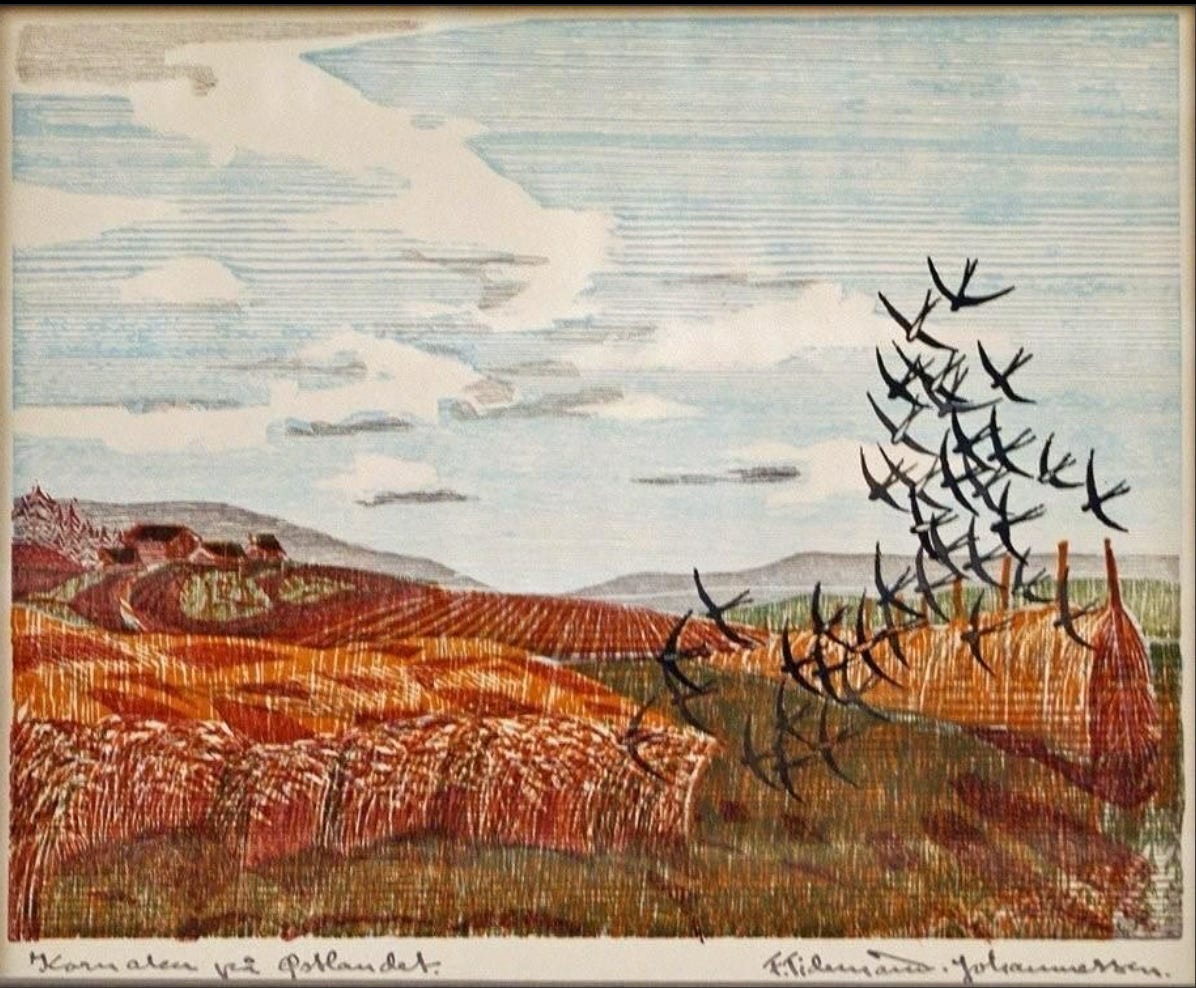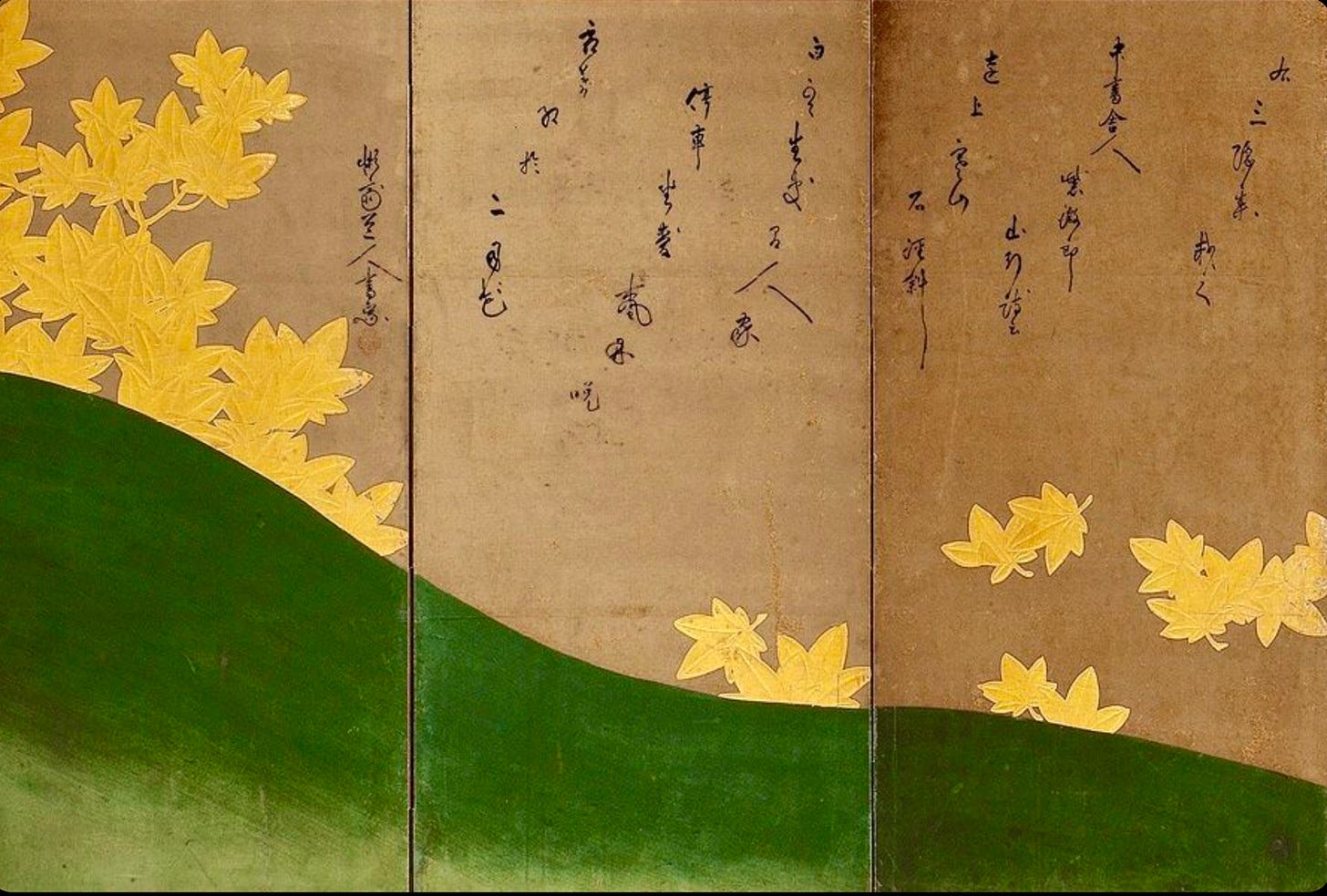Welcome to English Teacher Weekly—your source for what’s worthwhile from the worlds of literature, education, Christian thought, and the humanities.
I’m back after a week’s break from the newsletter. I’m renewed and recharged, ready for more ETW goodness. Enjoy this week’s edition!
As always, I welcome your feedback and comments. You can reply to this email or find me on the Substack platform. And listen. Never be afraid to share ETW with your like-minded friends and colleagues. Your help with this project has proven to be incredibly encouraging. Thank you!
THIS WEEK’S FEATURES
Han Kang wins the Nobel for Literature
The Nobel Prize in Literature for 2024 was awarded to Han Kang "for her intense poetic prose that confronts historical traumas and exposes the fragility of human life." Her most acclaimed novel, The Vegetarian, won the Booker prize upon its translation to English. Born in 1970, she is the first South Korean writer to win the award and one of its younger recipients in recent years.
When Han was 9, her family moved to Seoul just months before the Gwangju uprising, when government troops fired on crowds of pro-democracy protesters, killing hundreds. The event shaped her views on humanity’s capacity for violence, Han said in the 2016 interview, and its specter has haunted her writing. In her 2014 novel “Human Acts,” a writer observes a police raid on a group of activists.
She also recalled seeing images of people who lined up to donate their blood to those who were injured in the uprising.
“It was like two unsolvable riddles imprinted on my mind: How can humans be so violent, and how can humans be so sublime?” she said. “When I write novels, I find myself always returning to the theme of what it means to be human.”
The novelist Hernan Diaz praised Han’s “unique ear for the rumors of history,” adding that she can “access the traumas that have shaped and bruised entire generations, and she does so without ever turning her novels into mere didactical tools.”
Here’s
, a fan of Kang’s work, on the Nobel’s move toward a “lifetime achievement” model, as opposed to celebrating mid-career peaks.One thing that’s clear is that younger winners were more common in the past. In the early decades of the award, many writers won in their 40s. That shifted. In the last 77 years, only Brodsky won as a forty-something. Now, winning in your mid or late 50s is considered young. Kang joins Orham Pamuk (54 in 2006), Herta Müller (56 in 2009), and Olga Tokarczuk (57 in 2018) as recent young winners, each of whom generated discussion about their surprisingly young ages when they won.
The Ladder of Abstraction
I was first introduced to the “Ladder of Abstraction” by Roy Peter Clark in his book Writing Tools: 55 Essential Strategies for Every Writer. Each chapter of Clark’s book offers actionable, succinct advice with simple examples, a perfect collection to draw from occasionally when the need arises with your students.
Here’s the deal with the ladder of abstraction: As we know, the best writing stays near the earth with concrete sensory details and movement. Yet it also must ascend the heights, articulating concepts, relationships, emotions. A writer is aware of the varying degrees of abstraction necessary—from the gritty to the esoteric—and makes the choices accordingly. A lot of writing problems can be solved by revising the language upward to higher levels of conceptual precision—or downward to sensory specificity.
From Clark’s chapter titled “Show and Tell”:
Good writers move up and down the ladder of abstraction. At the bottom are bloody knives and rosary beads, wedding rings and baseball cards. At the top are words that reach for a higher meaning, words like “freedom” and “literacy.” Beware of the middle, the rungs of the ladder where bureaucracy and public policy lurk. In that place, teachers are referred to as “instructional units.”
…
Let’s look at how some good writers move up and down the ladder. Consider this lead by Jonathan Bor on a heart transplant operation: “A healthy 17-year-old heart pumped the gift of life through 34-year-old Bruce Murray Friday, following a four-hour transplant operation that doctors said went without a hitch.” That heart is at the bottom of the ladder — there is no other heart like it in the world — but the blood that it pumps signifies a higher meaning, “the gift of life.” Such movements up the ladder create a lift-off of understanding, an effect some writers call “altitude.”
Against Killing Children
Wendell Berry has a new essay in the October issue of The Christian Century titled “Against Killing Children.” Here’s how it begins:
Soon enough, and somewhat to my surprise, I have become an aged man. For many years I have been an advocate for the good and goods in which I have invested my heart. I am a patriot but not a nationalist. Since the Vietnam years, I have opposed our wars of national adventure, and I have opposed the extractive industrialism that passes with us for a national economy. I have opposed the dominant attitudes and technologies by which we are destroying, and have too nearly destroyed, the economic landscapes of our country, our country itself, our land. The different manifestations of our destructiveness are all parts of one thing: a global corporate economy concentrated upon the effort to turn to profit everything that can be subdued to its methods. Whatever cannot be made directly profitable—the lives and needs of children, let us say—it ignores and thus draws into the vortex of its destruction.
And so, as a “late” essay, I want to address a problem, in fact a disaster, that I have not heretofore said enough about: our destruction of children.
I recommend reading it in its entirety.
Dead Speech
, author of The Shallows, on what happens when human culture becomes mere “content” for LLMs to recycle. Large language models are chatbots.From “Dead Labor, Dead Speech”:
If, as Marx argued, capital is dead labor, then the products of large language models might best be understood as dead speech. Just as factory workers produce, with their “living labor,” machines and other forms of physical capital that are then used, as “dead labor,” to produce more physical commodities, so human expressions of thought and creativity—“living speech” in the forms of writing, art, photography, and music—become raw materials used to produce “dead speech” in those same forms. LLMs, to continue with Marx’s horror-story metaphor, feed “vampire-like” on human culture. Without our words and pictures and songs, they would cease to function. They would become as silent as a corpse in a casket.
The Growth-Bursts of New Literature
has obviously read a lot of literature in his life, but—as every conscientious reader can attest—there are still a lot of gaps in the proverbial library shelves.In a recent post for his Story Club, he explains his attitude toward this perceived deficiency in his reading life:
I try to think of it this way: the gaping holes in my reading mean I will always have an easy way to supply myself with a burst of growth: just read someone great and new (new to me, that is).
I remember about fifteen years ago, I read Sontag’s essays for the first time and was at a party, walking around yapping about her work like it was brand-new – which it was, to me. And I got some good writing done in the months afterwards, reacting to this “new” writer.
So, rather than think of myself as, say, “a badly read imposter,” I try to think of myself as “someone with lots of growth-bursts ahead of me, which I will arrange strategically to last the rest of my life.”
You know, one sign of a truly well-read person is that he won’t be surprised if you haven’t read a book that seems indispensable. He knows there’s simply too much to read—and, Lord willing, a lot of life left to live.
The AI Disconnect
reports on the growing disconnect between the world of edtech and the rest of the educational world, especially regarding AI. As he puts it, “‘I have my students work with their tutor chatbot for twenty minutes a day and they’re miles ahead of where they would have been last year,’ said absolutely nobody.”
I’m back from math teacher fest in Chicago, IL (NCTM) and the disconnect has never been more apparent to me. A large group of people has drastically misunderstood the assignment of helping kids learn. We are not all working on the same page or even working from the same playbook here.
Leading one group are technologists like Sam Altman, the CEO of OpenAI, who recently promised “virtual tutors who can provide personalized instruction in any subject, in any language, and at whatever pace [our children] need.”
In another group, you’ll find the thousands of math teachers gathered in Chicago, each one in their own way celebrating joy, struggle, creativity, and perseverance in learning math, attributes that any of them will tell you are central to learning, not peripheral, and almost always mediated by humans.
Of course, the gap between educators and industry (and politics) has always been there. But:
The disconnect is growing wider. Teachers are drowning and they are emphatic about their needs: higher pay, support with student behavior, fewer administrative burdens, and smaller class sizes. With generative AI, technologists think they’re throwing life preservers right next to the teachers. But it looks more and more to me like they’re throwing boxes of loose jet ski parts right on their heads.
In his post, Meyer mentions a very revealing report from Education Next on the efficacy of online math programs like Khan Academy and IXL. When used as the makers intended, they show an impressive effect size in the .2+ standard deviation range. Pretty good! How many students use the programs as they’re designed to be used? Less than 5% of users.
Imagine a doctor prescribing a sophisticated new drug to 100 patients and finding 95 of them didn’t take it as prescribed. That is the situation with many online math interventions in K–12 education today. They are a solution for the 5 percent. The other 95 percent see minimal gains, if any.
Writing as Mystical Experience
Jamie Quatro, author of the new novel Two-Step Devil, on the “porousness” in her writing between the “real” and the “otherworldly”—an interview with Nicole Graev Lipson for The Millions:
The radical Christian idea is that heaven has already begun to break into earth, almost as if through a scrim or a veil, in the form of the resurrected body of Jesus. The consummation will be the full reunion of heaven and earth. Martin Luther said that the right response to “what would you do if the world was ending tomorrow” is “plant an apple tree.” How differently would we treat the planet if we believed it was meant for healing, not destruction?
And if you’re a writer, you don’t have to believe one bit of the above to know that there’s something mystical going on when you’re deep in the writing of a book.
PODCAST ROUNDUP
A fun conversation amongst three classically-minded teachers about an American classic:
sits down with Russ Ramsey, author of Rembrandt Is in the Wind and the newly published Van Gogh Has a Broken Heart: What Art Teaches Us about the Wonder and Struggle of Being Alive.Jonathan Pageau chats with story-teller and mythographer Martin Shaw about his new course on Christian Wonder Tales.
If you’re going to accomplish any kind of creative work, you're going to need some people around you to hype you up.
THE HYPERLINK GARDEN
“Finally, we’re going to figure out why this book is good.”—
and take a good, close look at Maurice Sendak’s Where the Wild Things Are
, editor of Shelter Publications, gives us a tour of his home-made home.It’s October—time for the MLB playoffs. Here’s Bob Dylan’s Theme Time Radio Hour: Baseball
“The poise of Frederick Douglass” by
From Time: Why people like to spoil the endings of books and movies
Ed Simon for The Hedgehog Review: Anne Sexton’s unnoticed sacramental, religious confessionalism—As she said, “We are all writing God’s poem.”
David Waldstreicher wins the 2024 George Washington Prize for his new biography The Odyssey of Phillis Wheatley: A Poet’s Journeys through American Slavery and Independence
Elias Altman’s tribute to his former boss, famed editor Lewis Lapham
From the WSJ: Gen Z-ers Are Computer Whizzes. Just Don’t Ask Them to Type
An interesting discussion thread from
: Who’s the most American character in fiction?From the LARB, Dennis Wilson Wise on the sad state of Tolkien scholarly work today: “…we’re getting better, we’re not quite there … yet.”
From Social Media Today: A social network where everyone but you is a bot
The NYT reports on the collectible pen market: “For collectors and enthusiasts at the London Pen Show, the finest writing instruments can cost thousands of dollars.”
For Art Forum, Rhoda Feng reviews Jonathan Lethem’s book Cellophane Bricks: A Life in Visual Culture: “Cellophane Bricks is full of such elegant wrinkles, but what most distinguishes the writing is its sheer exuberance.”







I think we're just at the very beginning of the journey to see how AI is going to radically shape and reshape our world, which is a little frightening.
But that Jon Klassen and Mac Barnett piece about Wild Things is absolutely brilliant and wonderful and lovely.
I just listened to Pageau's interview with Martin Shaw this morning, and it was both inspiring and disheartening. Inspiring because of Shaw's approach to story, but disheartening when compared to how great stories are taught (if they're taught at all) in the public school setting.